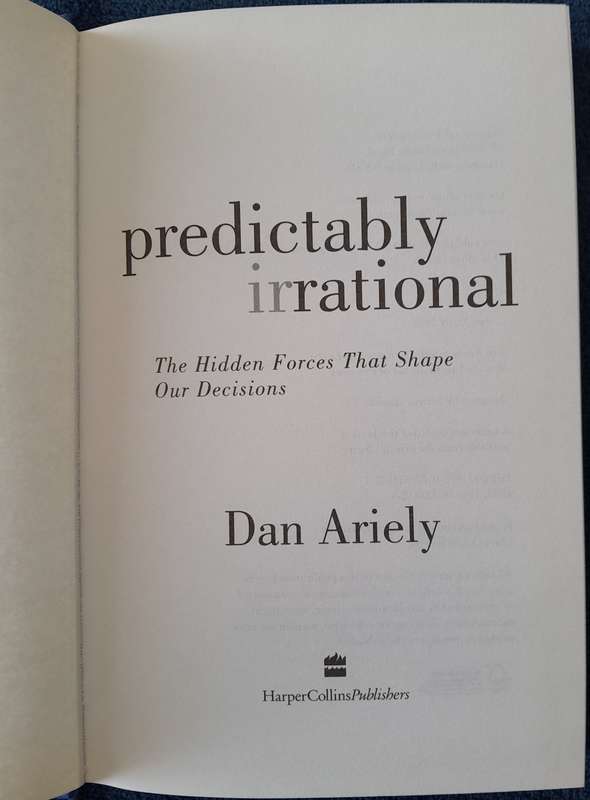Dan Ariely's Predictably Irrational: The Hidden Forces That Shape Our Decisions, published in 2008, challenges the traditional notion of rational decision-making. Through a series of engaging experiments and anecdotes, Ariely illustrates how human behavior often deviates from rationality due to various psychological and emotional influences.
Key Themes
Relativity in Decision-Making:
Ariely discusses how people make decisions based on comparisons rather than absolute values. For instance, individuals often choose options that are easier to compare, which can lead to irrational choices influenced by irrelevant alternatives, known as the decoy effect.
The Cost of Zero:
The book explores how the allure of "free" can lead to poor decision-making. Ariely argues that people often overvalue free items, leading to choices that do not maximize their overall well-being.
Social Norms and Incentives:
Ariely examines how social norms can affect our behavior. He suggests that when people are paid to perform tasks they would otherwise do for free, their motivation diminishes, highlighting the complex interplay between monetary incentives and intrinsic motivation.
Emotional Influences:
The book delves into how emotions, particularly in high-arousal situations, can skew our decision-making processes. Ariely and his colleague George Loewenstein conducted experiments to show that emotional states can significantly alter our choices, often leading to actions we would not normally consider.
Procrastination and Self-Control:
Ariely addresses the common human struggle with procrastination and self-control, suggesting that understanding our irrational tendencies can help mitigate their effects on our lives.
Reception and Impact
Predictably Irrational has been widely praised for its accessible writing style and insightful content. It has influenced both academic discussions in behavioral economics and popular culture, inspiring adaptations like the NBC show The Irrational. Critics have lauded Ariely's ability to blend humor with serious insights into human behavior, making complex ideas relatable and understandable.
Overall, Ariely's work encourages readers to rethink their decision-making processes and recognize the hidden forces that shape their choices, ultimately aiming to foster greater awareness and better decision-making in everyday life.
Like new.





